8+ Sample Salary Negotiation Letters
-
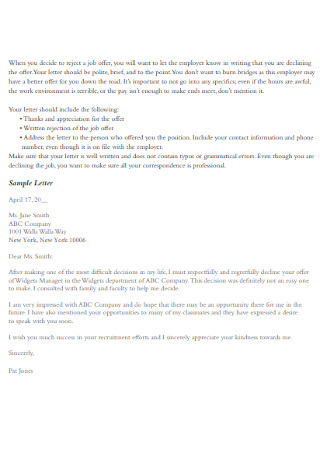
Salary Offer Negotiation Letter
download now -
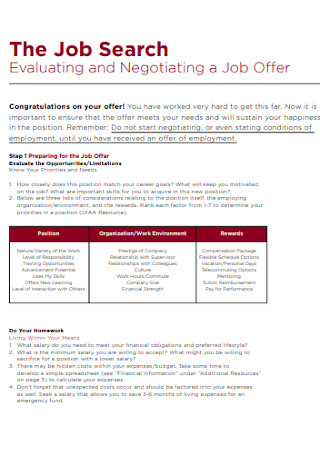
Salary Negotiation Job Offer Letter
download now -
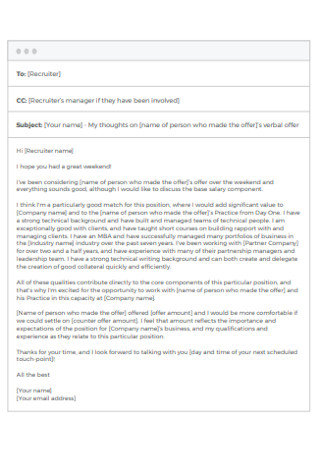
Sample Salary Negotiation Letter
download now -
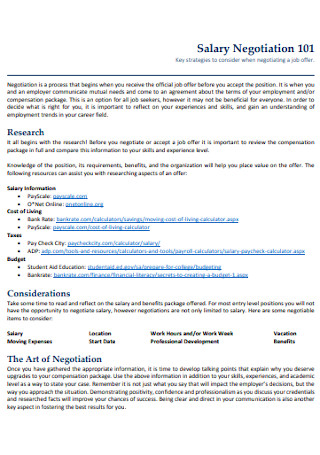
Lecturer Salary Negotiation Letter
download now -
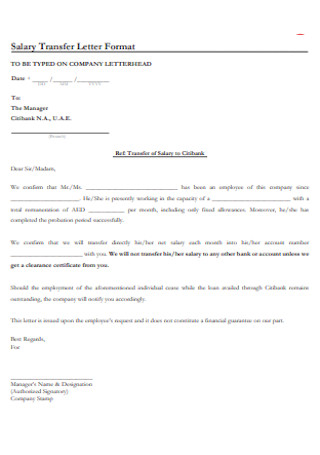
Salary Transfer Negotiation Letter
download now -
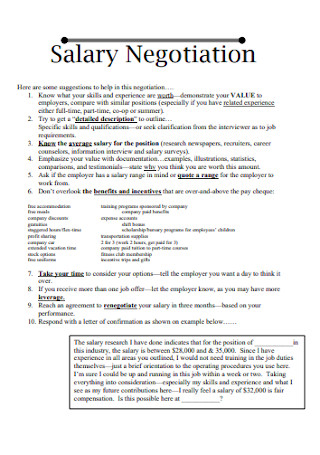
Simple Salary Negotiation Letter
download now -
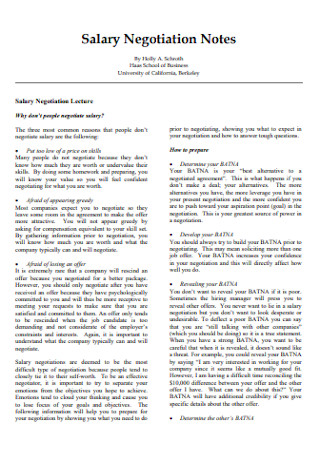
Salary Negotiation Notes Letter
download now -
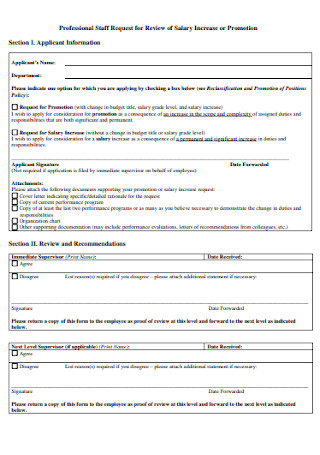
Staff Salary Increase Negotiation Letter
download now -
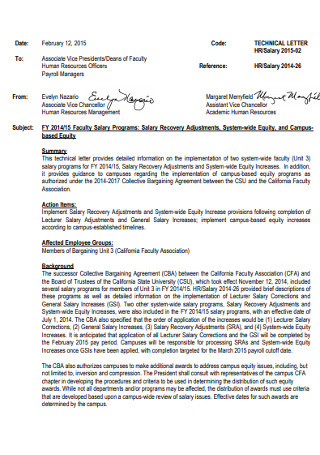
HR Salary Increase Negotiation Letter
download now
FREE Salary Negotiation Letter s to Download
8+ Sample Salary Negotiation Letters
What is a Salary Negotiation Letter?
Things to Consider During Salary Negotiations
How to Negotiate for a Salary Raise
Why It’s Important To Negotiate Your Salary
FAQs
How to determine industry standards and trends?
What should I tell the recruiter if they ask about my salary expectations first?
How can I ensure that the potential employer will honor our negotiation deal?
What is a Salary Negotiation Letter?
For fresh graduates and those new to the job market, salary negotiation is the process where current or potential employees discuss or negotiate their compensation such as amount pay, income, earnings, commission, salary, wages, salary raise, and even employee benefits with their employers.
It generally starts with an offer from an employer and the employee can accept, decline, or negotiate the details of the offer within the set deadline. Deadlines are put in place by employers to ensure that negotiations only take place on a short period and should the employee decline and no agreement has been reached, they can contact other potential employees.
The process of negotiating a job offer is fairly straightforward. But the art of salary negotiation is not widely practiced as it can feel intimidating to ask for more money than being offered. There are still a lot of job seekers who are apprehensive about sending that salary negotiation email. Many of them believe that it can negatively impact how recruiters view their potential.
However, a 2018 national survey research suggests that there’s really nothing much to lose–according to its results, only 10% of recruiters said that it harms their view of the candidate. This means that 90% of recruiters out there do not mind that job seekers negotiate their salaries. In fact, about 70% of managers do not expect candidates to accept initial salary offers immediately.
Things to Consider During Salary Negotiations
Many factors have to be considered before coming up with a salary range for your negotiations. Here are some of these factors to keep in mind to avoid awkward mistakes when negotiating for a pay raise.
How to Negotiate for a Salary Raise
Step 1: Research and familiarize yourself with the industry standards and trends
Managers and employers feel just as uncomfortable as you do during salary negotiations. So it is best that before you come into their office and request for a raise, you should have a realistic expectation of a salary range. It requires a great deal of preparation and successful negotiators do their research, prepare a negotiating script, and view the other party as a negotiating partner.
Determine how much the company pays and how much other companies are willing to pay for the job. This can help you build your case and make them understand why you deserve to get what you’re asking for. This will also prepare you for the tough questions thrown your way.
Step 2: Organize your thoughts and prepare your talking points
Once you have all the information that you need, you will have to request a meeting with your manager. But before you send it, make sure that you have organized your thoughts.
Prepare a script that you will say to your manager and ensure that you explain why you feel you deserve more compensation. You should highlight your strengths and track record, as well as your performance and achievements at work. If you can, share all the details of the extra work you did for the firm.
Salary negotiation is not just about telling your employer that you want to get a raise based on the industry standards. You have to show them that you deserve it as proven by your track record.
If you are starting a new company, the same principle applies. Before you accept their offer, try to make a job offer negotiation. Jot down solid examples of your skills and experience and make them understand the value that you will add to the company. If you have certifications or specialized technical skills and training that can help improve job performance, be sure to mention them. Showing your potential employer about your strengths for the job is enough reason to get that raise.
Step 3: Factor in other perks and benefits and consider the whole deal being offered
Many job seekers are too focused on the monetary value of a compensation package that they overlook some of the aspects of it. The salary negotiation process can also take into account other factors such as additional perks and benefits that come with the job. Some employers may offer lower salary but they have wonderful comprehensive employee benefits that can rival other companies that offer higher wages.
Pay attention to other perks such as health insurance, bonuses like singing on bonus, mid-year and year-end bonuses, living allowances, sick and vacation day leaves, among others. Some employers offer transportation allowance or reimbursement. Some employers are more flexible when it comes to additional perks if they cannot afford to give a higher salary for you.
Step 4: Choose your moment to negotiate
Typically, as a job seeker, you have to wait for a job offer before you send a job offer negotiation email detailing your desire for higher pay or added perks. You get more leverage after you have proven your skills and experience to be valuable to your new potential employer and after you have understood what they expect from you. Negotiating your salary early on may also harm your chances of getting a job offer.
Furthermore, seasoned recruiters advise that you counter the offer once or twice at the most and avoid revisiting old compensation packages that you have agreed upon. Doing this will show that you have set boundaries of what you will and will not accept as well as respecting the employers’ time so they can find someone who better fits the job description.
If the initial offer was relayed to you over the phone, don’t make a decision just yet. Ask for a copy sent to you via email or letter and request for time to process the information for some time–ideally 48 hours after receiving the offer. This way, you can weigh the pros and cons of the offer and send a salary negotiation counter offer if you like.
Why It’s Important To Negotiate Your Salary
Money matters, especially about your own salary, is not a subject everyone is comfortable talking about. But salary negotiation is a skill that every job seeker or employee should know if they want to secure their future.
Your First Salary Matters Most Of All
Salary negotiations are crucial. When you start negotiating for your salary, you’re not just negotiating the numbers that will appear on your payslip–you’re securing your future wages. When you transfer to another job or get a promotion, your salary increase will be based on the current salary you’re making. A higher starting pay also means a higher future paycheck.
Other than monetary value, taking a salary that’s less than what you deserve can negatively impact your work performance. Less pay, more work can lead to job dissatisfaction and become less productive–which means lesser chances of earning a raise and could also lead to resignation.
The Worst Thing That Can Happen Is When They Say “No” to You
Writing a salary negotiation letter or requesting a meeting about it has no downsides. None at all. Unless, you are being unreasonable, aggressive, condescending, and downright unprofessional, there are no other possible negative outcomes to these negotiations.
Yes, you’re asking for more money, and your manager can either accept or reject that request. If your request is granted, then you get the raise that you so deserve. On the other hand, if it gets declined, you will not be penalized for it. Sure, a rejection will hurt your feelings at that moment, but if you really think about it, that’s a good gauge to know if you’re worth being valued in the company. In other words, there really are no negative outcomes–just positive and neutral.
Negotiating Builds Character
It is incredibly important because you’re tapping into an important skill. Salary negotiation is not as simple as “asking for more money.” It takes a lot of effort and guts to be able to stand up for yourself and fight for what you deserve diplomatically.
It may be an uncomfortable situation to be in, especially when you’re waiting for what happens next. The manager may put their foot down and say no right there and there. But it’s going to be most likely along the line of “I’m not sure, but I’ll look into it and give you an answer by tomorrow.” When either of these happens, stay calm, cool, and collected. With confidence reply with something simple like “Thank you. I really appreciate your help with that.” and await their counter offer letter or email.
If you and the employer cannot reach an agreement, you need to decide if the job is worth the lower pay or not. If it’s the latter, politely decline the offer and walk away.
FAQs
How to determine industry standards and trends?
It is crucial in any salary negotiation that you know the current standards and trends in the industry. To help you with it, you can talk to recruiters about a realistic salary range that fits your skills and experience. Having this information on hand will help you land a job with a competitive salary.
What should I tell the recruiter if they ask about my salary expectations first?
There are instances when recruiters ask for your expected salary right away. So as not to sound dismissive, you should give them your salary range instead of an exact number. Cite your research about the industry-standard pay to frame the conversation as to what is fair and not what you want.
How can I ensure that the potential employer will honor our negotiation deal?
Always put your discussion in writing. The simplest way to do this is to negotiate salary over email. This way, your discussions are recorded and both you and the employer can keep a record of what you talked about. If the salary negotiation was done face-to-face, always make it a habit to write down the minutes of your discussion and send it to the other party for confirmation.
Salary negotiation is not an easy process to go through for many professionals. But having this skill can lead to more rewarding perks and benefits in the future and will help boost your career. Remember, when talking about your salary and what you deserve, you must know your worth in the industry and hopefully earn you the salary that you deserve.
